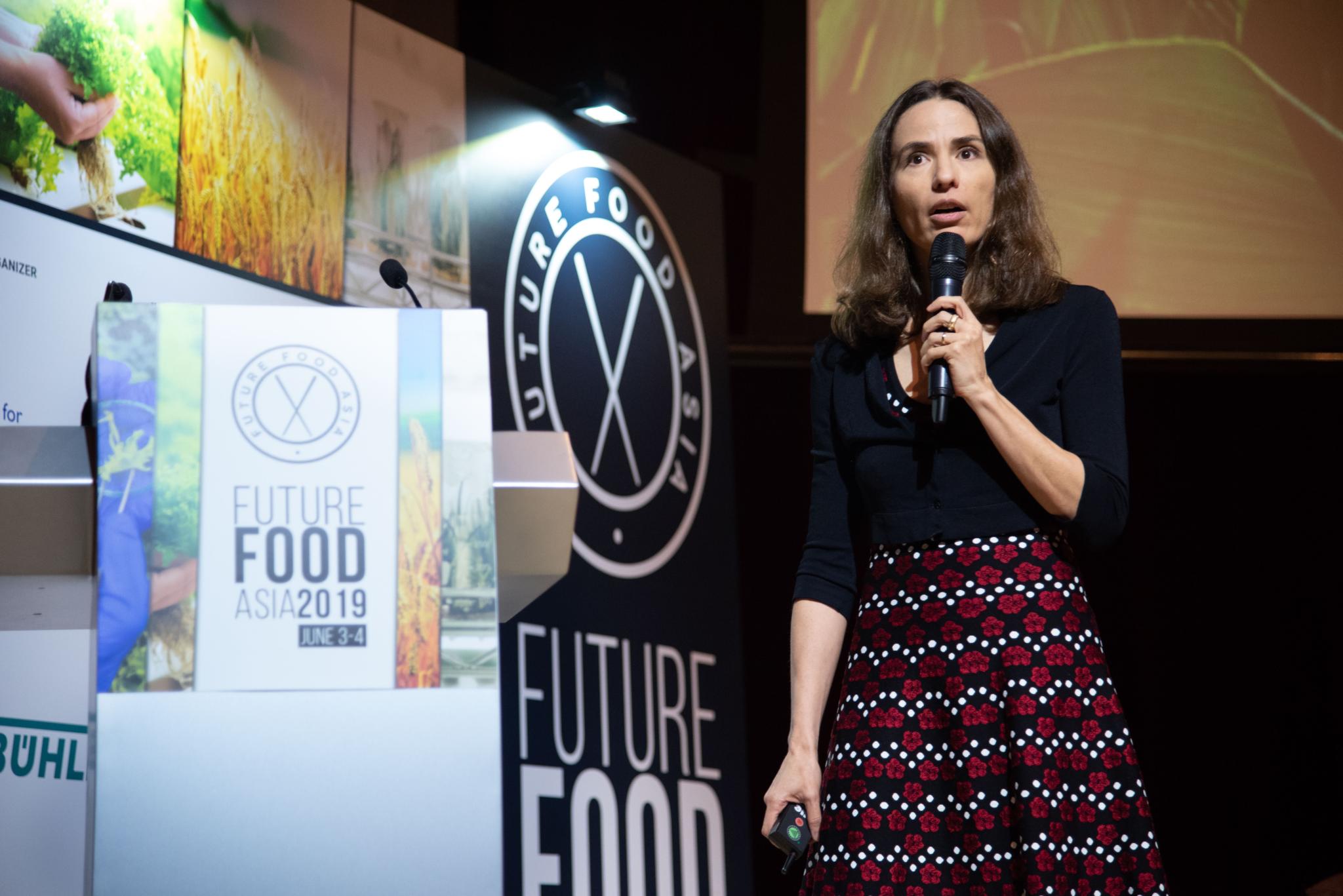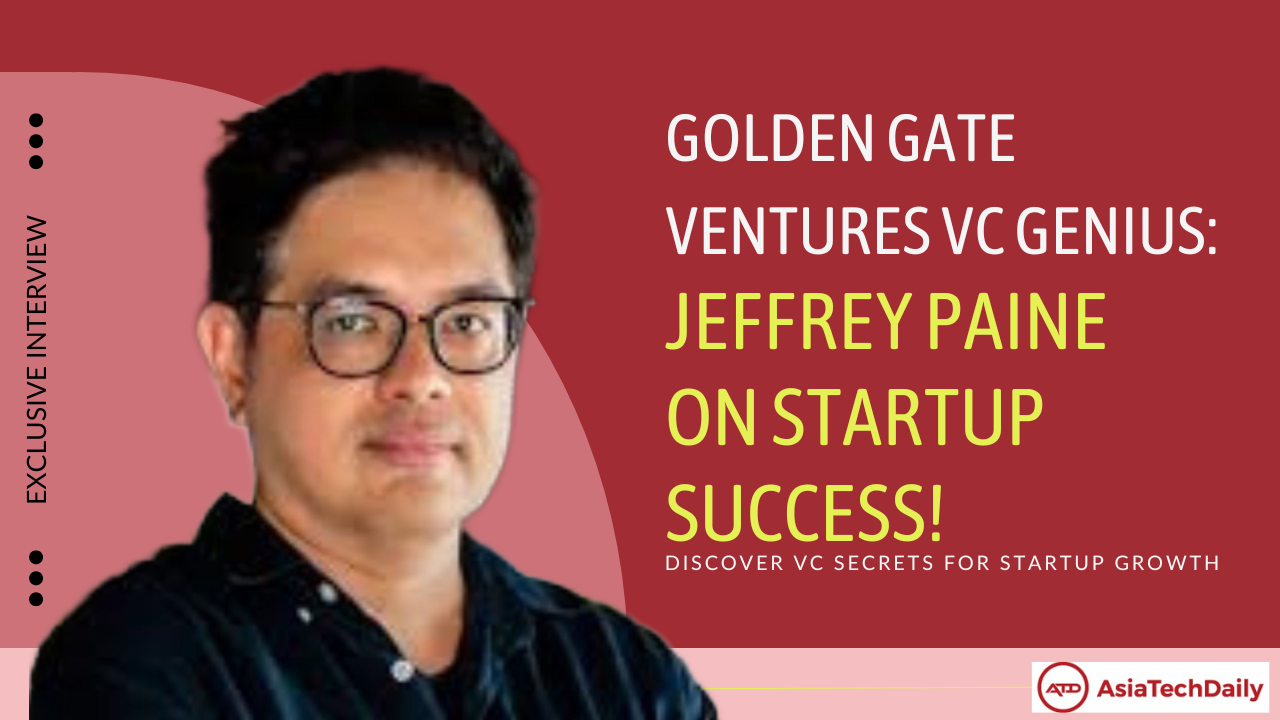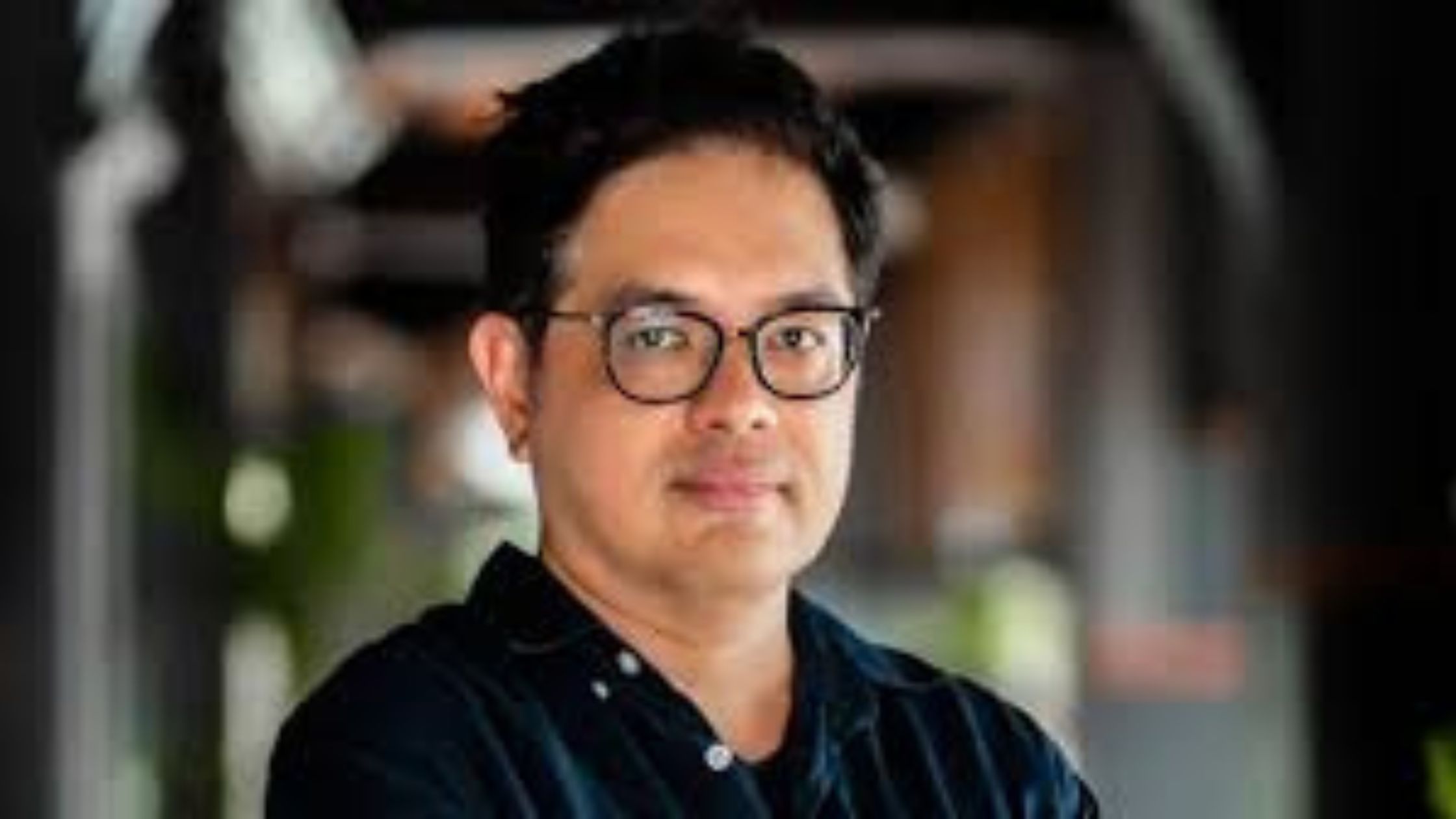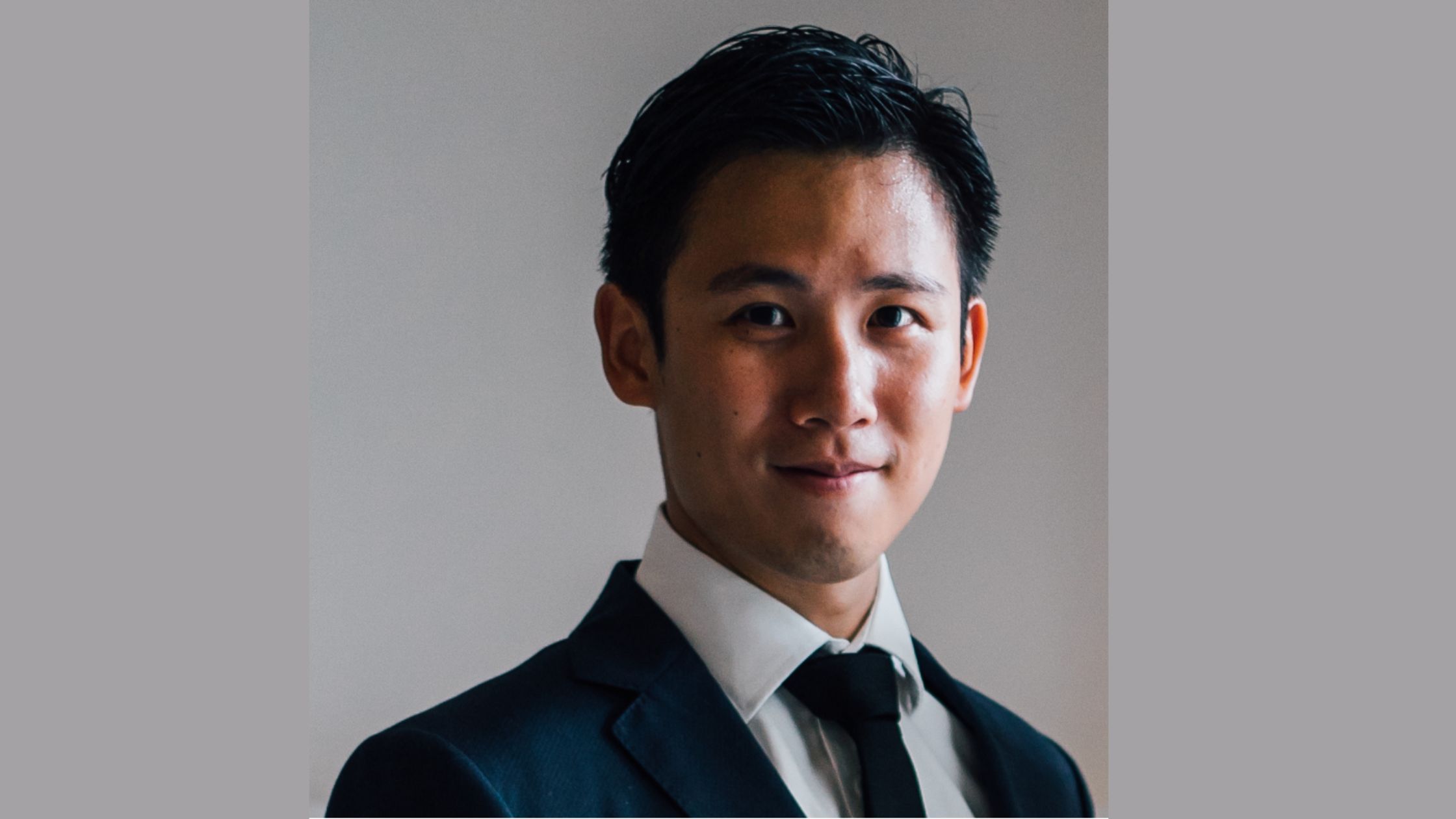AsiaTechDaily – Asia's Leading Tech and Startup Media Platform

Isabelle Decitre, ID Capital – An AgriTech And FoodTech Focused Venture Capitalist
Isabelle Decitre is an entrepreneur turned venture capitalist and is the founder and CEO at ID Capital Pte. Born in France, she has lived in many European countries before migrating to Singapore in 2012. She is passionate about fueling the future of food with new tech innovations.
This boutique investment and consulting company since its inception in 2014 has focussed on sustainable and disruptive food solutions for AgriTech and FoodTech companies in the Asia-Pacific region. ID Capital, in January 2019 has been appointed as a co-investment partner in Agri-FoodTech startups by SEEDS-Capital, Singapore.
In 2016, they launched Future Food Asia, which was one of its kind open innovation platform in the sector. This was conceptualized out of a belief that challenges faced by agriculture are mostly region-specific. The Future Food Asia has recently collaborated with Buhler and Alibaba Cloud and notably organized the first-of-its-kind Artificial Intelligence Challenge.
Ms. Decitre before moving to Singapore had a flourishing corporate career in the luxury goods industry, where she worked with Kering groups, Richemont, and at LVMH. Her last position was SVP Marketing & Communications at the Cognac brand Hennessey.
After checking out various investment sectors, Isabelle Decitre decided to focus on the APAC region on venture capital investment in sustainable food solutions field. She realized that the Agri-FoodTech sector was bound for a big change. Therefore, she focused on areas where technology could give entrepreneurs a competitive advantage and could also work as a trajectory for disruption.
Isabelle Decitre has received her engineering degree from Ecole Polytechnique and is also a holder of a degree in Chinese Language and Civilization.
Read on to know a lots more about Isabelle Decitre and how she reviews the agri-tech startups for investments.
What background and domain expertise do you have? What makes you turn into an investor?
Isabelle Decitre: I am a trained engineer with 20 years of experience in multinational companies (all in the luxury goods industry, where I had very diverse responsibilities up to C-level positions), followed by 7 years as an entrepreneur turned investor. The early exposure to a wide range of scientific disciplines, combined with the deep knowledge of how the industry works have shaped my taste for tech innovation.
It is almost accidentally that I became a VC investor when I realized that taken all together, the skills I had developed in the Agri-FoodTech sector were forming the backbone of a venture capital business.
Right after being an investor like in early days, there must be some tough times in building up the first fund along with building up a second fund or giving back the good returns to those LPs, If there is any similar tough time like this, please tell me more about it and how you (or your team) overcome the difficult times.
Isabelle Decitre: There is never a dull moment in the life of an entrepreneur! One of our ways to overcome hurdles has been to develop a multi-pronged business, which proved to be more resilient. In fact, as opposed to raising a fund, we kept investing, added an advisory business and completed the whole set up by creating the Future Food Asia Awards and Conference.
Without being too personal, a strong support system is important to navigate the pitfalls of growing a business “from zero to one”.
I also believe speed is important in this business, maybe more than in others. We try a lot of things, and quite a few will fail, but we’d rather have tried and failed quickly, and learn from it rather than overthinking every single decision.
As an investor, what kind of startups have you invested in? How did you find those startups to invest in?
Isabelle Decitre: We have invested in 5 Agri-FoodTech startups to date and are in the process of closing the 6th investment. They all address a very big pain point of the F&A industry, like Ynsect who comes up with alternative insect proteins for the feed industry, ScanTrust who is a SaaS platform that enables brand owners to protect against counterfeits, monitor unit-level traceability of products, and drive end-user engagement through secure digitalization. We also invested in Innovopro, whose chickpea protein processing technology enables clean label reformulation of a number of food products. And on the AgTech side, OneCrop has developed the 1st biodegradable mulch film for broadacre crops and succeeds in establishing business both in the US and in China.
The 5th one is going to be released soon and I am glad to let you know this will be our first Korean portfolio company.
What would be the core factors that you decide “Not” to invest in certain companies?
Isabelle Decitre: The first filter we apply to our deal flow is to check whether the startup fits our investment thesis, and here the main reason to drop is if we consider it does not significantly contribute to building a more sustainable food system. It does not mean the business proposition is not viable. It means we may just not be the right investor for this company.
Once the strategic fit is vetted, the #1 reason to drop is the team. At the end of the day, this is a people’s business, and we sometimes come across good science, good technology, but feel like the founding team is not of the fabric of entrepreneurs. When this happens, we try to gauge whether with more funding the founders will be self-aware enough to complement the team with the relevant calibers. And when we have a doubt, we prefer to pass.
What would be the KPI that you usually check about the startups’ growth? It may diverse in each industry like LTV, CAC, MoM, etc. but would be helpful to understand more about your additional investment factors.
Isabelle Decitre: The quality of the team is the most important, and maybe most difficult to assess. Beyond which, if the company already has some sales, we pay a lot of attention to the rate of repurchase. Selling once is ok, but getting repeat buyers is the signaling factor of a healthy startup.
If the startup is pre-commercial, which is often the case, we look at a combination of 2 things: the proprietary nature of the innovation, and the competitiveness of the product/ service sold.
What is the investment range and In a typical year, how many startups do you invest in? Do overseas headquartered startups have a chance to get investment from you or should be headquartered in certain countries?
Isabelle Decitre: We invest in 1 to 2 Series A rounds a year, typically as “tag-along” investors. Over time our focus has become the Asia-Pacific region, which is the nexus between high stakes and high growth, and we now only invest in startups based in this region.
What are the main factors that startups fail as per your experience “after” getting investment and how can they prevent mistakes in advance from your personal perspective?
Isabelle Decitre: I would say it’s the capacity to raise successful rounds of funding that makes the difference. My simple advice is dual: first, to consider fundraising as a skill set that the team as a whole needs to either have or acquire. And then to factor in your schedule the time it takes to raise a round (rarely less than 9 months) and start early enough.
What’s your advice to entrepreneurs who have a chance to meet investors like you? What are the top 3 questions that you always ask the founders?
Isabelle Decitre: I really don’t have an answer to the 1st part of this question.
The 3 questions we ask all entrepreneurs are deceptively simple!
- 1. Why are you doing what you are doing?
- What is so unique in what you are doing?
- What is your main challenge to growing your business?
What’s your general thought about the term “Global” and what are the important factors (criteria) for local startups to consider for international expansion?
Isabelle Decitre: It depends a lot on your business and the type of funding you are looking for. If you think you can succeed with domestic investors only and your addressable market is substantial in your home country, being global in the early stage might be a distraction.
But in most cases, entrepreneurs have higher ambitions, and this is where being global from day one is important. It does not mean spreading yourself too thinly, it means having an international strategy and getting ready to have resources and capabilities to address international markets.
The 1st overseas investor is critical, as it can have a strong prescription power on the following ones.
As you know, our company name is “beSUCCESS”, what’s your definition of the term “success” as an investor or as an individual human being?
Isabelle Decitre: Success is a very personal and relative notion. We as investors are driven by the notion of having a positive impact (on the food & agriculture supply chain). We consider profit as a scorecard, not a driver. And try to fund entrepreneurs whose values are aligned with ours. Please don’t get me wrong, in this business profit and ROI are important. There are just multiple ways to grow a business successfully and we want to be part of the ones with a sense of purpose, not just greed.
What are the one or two things that you would do differently if you could go back to 10 years ago?
Isabelle Decitre: I would start learning more foreign languages, but for this, I would need to go to more than 10 years back ☺Languages are open doors to each other’s cultures, and this is most important to business and life in general.
When you travel internationally, what kind of entrepreneurs and startups (or industries) you want to meet?
Isabelle Decitre: I like to meet with people for which what they are doing is more than a job. These are the ones who can succeed despite all odds.
You can follow Isabelle Decitre here.
Are you looking to secure investment for your startup or a keen startup enthusiast, keep an eye on our interview section.
Follow Asia Tech Daily to know about the innovative startups and how they are revolutionizing the ecosystem.





